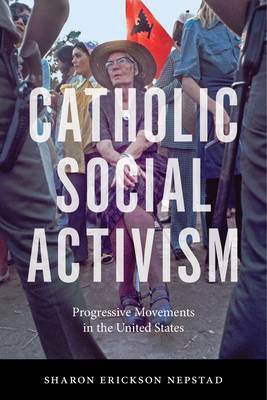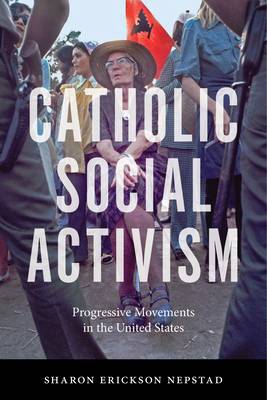
- Retrait gratuit dans votre magasin Club
- 7.000.000 titres dans notre catalogue
- Payer en toute sécurité
- Toujours un magasin près de chez vous
- Retrait gratuit dans votre magasin Club
- 7.000.0000 titres dans notre catalogue
- Payer en toute sécurité
- Toujours un magasin près de chez vous
Catholic Social Activism
Progressive Movements in the United States
Sharon Erickson Nepstad
Livre broché | Anglais
53,45 €
+ 106 points
Format
Description
A history of Catholic social thought
Many Americans assume that the Catholic Church is inherently conservative, based on its stances on abortion, contraception, and divorce. Yet there is a longstanding tradition of progressive Catholic movements in the United States that have addressed a variety of issues from labor, war, immigration, and environmental protection, to human rights, women's rights, exploitive development practices, and bellicose foreign policies. These Catholic social movements have helped to shift the Church from an institution that had historically supported incumbent governments and political elites to a Church that has increasingly sided with the vulnerable and oppressed. This book provides a concise history of progressively oriented Catholic Social Thought, which conveys the Catholic Church's position on a variety of social justice concerns. Sharon Erickson Nepstad introduces key papal encyclicals and other church documents, showing how lay Catholics in the United States have put these ideas into practice through a creative and sometimes provocative political engagement. Nepstad also explores how these progressive movements have pressured the religious hierarchy to respond to pressing social issues, such as women's ordination, conscription, and the morality of nuclear deterrence policies. Catholic Social Activism vividly depicts how these progressive movements have helped to shape the religious landscape of the United States, and how they have provoked controversy and debate among Catholics and non-Catholics alike.Spécifications
Parties prenantes
- Auteur(s) :
- Editeur:
Contenu
- Nombre de pages :
- 224
- Langue:
- Anglais
Caractéristiques
- EAN:
- 9781479879229
- Date de parution :
- 27-08-19
- Format:
- Livre broché
- Format numérique:
- Trade paperback (VS)
- Dimensions :
- 152 mm x 226 mm
- Poids :
- 317 g

Les avis
Nous publions uniquement les avis qui respectent les conditions requises. Consultez nos conditions pour les avis.






